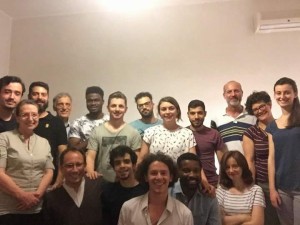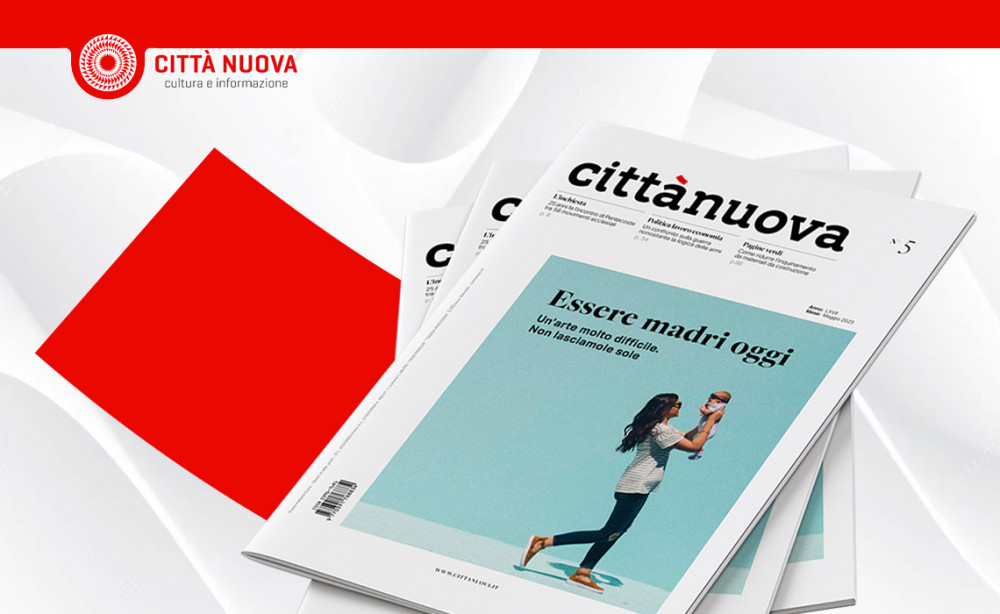Beyond the market - A surprising encounter with an association that has made one of Chiara Lubich's dreams, the Economy of Communion its own
by Luigino Bruni
published in Città Nuova, August 2018
 Florence, 28 June, San Lorenzo Church. In the rooms below the church, the Associazione Costruttori di pace (Association of Peacebuilders) presented their nascent enterprise of 'street food’ to an audience of about forty people. I had met them a few months earlier, when they invited me so they could tell me about their interest, or 'passion' (as they like to say), for the Economy of Communion (EoC). An association created by young people to meet the needs of other young migrants who, once they reach 18 years of age, find themselves in a situation of serious vulnerability. They first began to welcome them into the homes of some of them, then they rented an apartment, and now they have created a reception facility in the parish premises.
Florence, 28 June, San Lorenzo Church. In the rooms below the church, the Associazione Costruttori di pace (Association of Peacebuilders) presented their nascent enterprise of 'street food’ to an audience of about forty people. I had met them a few months earlier, when they invited me so they could tell me about their interest, or 'passion' (as they like to say), for the Economy of Communion (EoC). An association created by young people to meet the needs of other young migrants who, once they reach 18 years of age, find themselves in a situation of serious vulnerability. They first began to welcome them into the homes of some of them, then they rented an apartment, and now they have created a reception facility in the parish premises.
The members of the association are workers, salespersons, students. The president, Emmanuel, is a young Italian of African parents. "We found the EoC by chance, looking on the internet for different types of economies," says Mauro, a member of the group, "and from there we arrived at Chiara Lubich. We listened to her on video in some training meetings; then, in one night, some of us dreamt of her, simultaneously. One of them was embraced by Chiara, without her saying anything; to another she gave answers to questions about God and faith; and to me,” he continues, a bit moved “she said a sentence that I have not yet fully understood: »always keep Jesus at the centre«".
The meeting with the Peacebuilders is one of the strongest and most authentic events of these past years. It’s a group of young people who put themselves to work concretely to welcome into their homes other young people going through difficulties. They found the EoC on their own and then met Chiara in their dream in the same night, and she said beautiful things to them, the things she said many times to many of us, but we are forgetting them, because we are forgetting the desire to change the world. The economy of communion is being reborn today (I am thinking of the Congo, Latin America and Europe, too) wherever there are people like Emmanuel, Mauro and their friends and families. Wherever there are people who start welcoming the poor into their homes again. The first 'founding myth' of the EoC is set in post-war Trento, when in the first focolare (which means ‘hearth’ or ‘fireside’ in English - the tr.), sitting at the table one would find “a focolarina, a poor man, a focolarino, a poor man” - as Chiara and her first companions told us many times. And on those occasions, they said, they always put the most beautiful tablecloths and cutlery, to express with that simple gesture how much dignity and value they appropriated to those guests.
Today the EoC stays alive and is reborn where people and entrepreneurs continue to welcome people in difficulty 'inside their house', even if the tables set for the feast are workshop counters and company canteens. Community and productive inclusion is still the first step in every new experience of communion, in every part of the world. "I went to live with the young people we had hosted," Emmanuel told me, "because I could not say that we are a family if I did not go to live with them. Life is born again from life, when someone leaves the warmth of meetings and the consumption of spirituality, and starts to walk towards the other waiting for us.”
Hospitality is a virtue that is very much threatened today as the West is going through an era when it has forgotten its founding values, no longer remembering that Isaac, the son of the Promise, was announced by three guests hosted by Abraham and Sara under their nomadic tent.
The new EoC company that is being set up in Florence will create work for these guests who have come from the sea, because until a young man does not work he has not yet been truly welcomed. However, work does not come from the government or bureaucracies but from those who decide to become entrepreneurs to respond to the cries of the people of their city. Only a thousand Emmanuels and Mauros will keep the EoC alive, and if we continue to stay cosy in the comfort of our communities, the angels will be the ones to visit them and call them in a dream.







